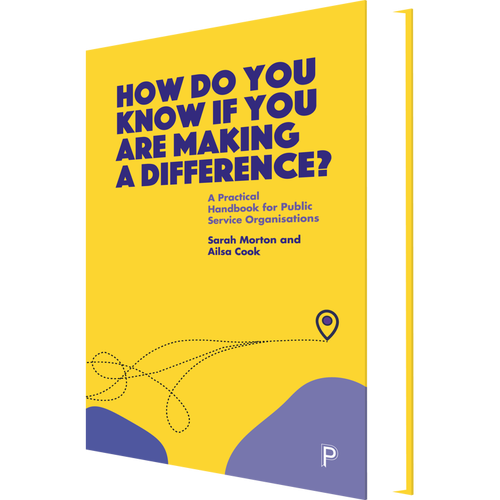The Matter of Focus Approach to understanding and evidencing how your work makes a difference
-
Get a quick overview: watch an explainer…
-
Learn more: explore our blog posts…
-
Explore in depth: get the book…

Co-authored by Matter of Focus Directors Sarah Morton & Ailsa Cook, and published by Policy Press, this practical handbook pulls together the Matter of Focus approach; drawing on everything they have learned from working with more than 180 organisations and sharing some stories of our pioneering clients.
Join us for a live webinar
We regularly hold free webinars to share our approach and learning. Topics have included: making theories of change work for you, data for understanding impact, evaluating personal outcomes, and unlocking the impact of research.
Explore what’s coming up or catch up with past webinars in our webinar showcase.